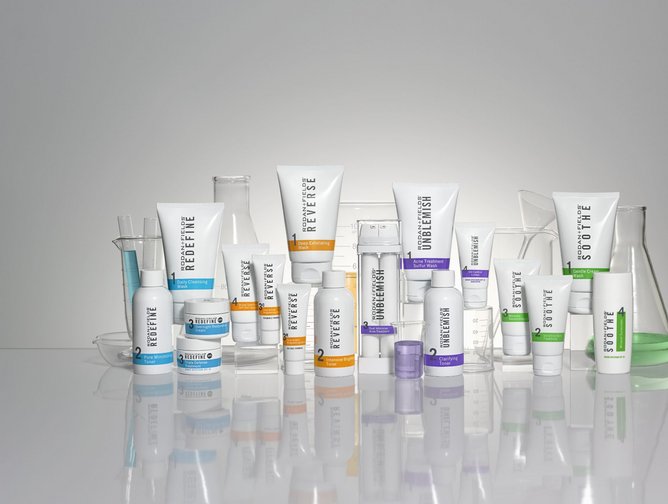How Rodan + Fields is transforming its global supply chain
Skincare has become big business. Looking and feeling good, both on the inside and out has become a significant market and led companies to vie against one another to not only attract new customers, but also retain a solid customer base in the process. In North America, the premium skincare market is set to reach $9.9bn by 2021, with the US accounting for 15% of global premium skincare sales alone.
However, whilst the majority of adult skincare products focus on areas such as anti-aging, dry, sensitive, or oily skin, Dr. Katie Rodan and Dr. Kathy Fields founded Rodan + Fields to support the growing gap for dermatological products within the adult skincare market.
With over 200,000 independent consultants across the US, Canada and Australia, Rodan + Fields has gained over 2mn customers, and is projected to continue to drive double-digital growth across its operations for the next five years.
“This has been a great challenge for us,” explains Bryan Wayda, Chief Supply and Service Officer at Rodan + Fields.
“When we're growing at an average of 60% or more over the last 10 years, we have worked closely with our supply base to address this in a comprehensive way.”
Disrupting traditional business models
Originally selling the business to Estee Lauder in 2003, the founders bought back the business upon witnessing a number of areas converging together which provided a unique opportunity to further disrupt the beauty market. The emergence of social media in the mid-2000s led companies to look at transforming traditional business models and address the ongoing challenges within brick and mortar retail stores.
“The founders saw an opportunity to look at the direct selling model in a very disruptive way, which broke some of the rules of traditional direct selling and created how we operate today with our consumer connected commerce model,” says Wayda.
“In a traditional direct selling model, the company would sell to a distributor, and the distributor would collect products, sell to customers, collect the money and do the administrative work.
“Our model flipped it upside down, where we said, ‘why not let us do a direct to consumer shipment, order management and payment process’. This allows consultants to do what they do best, which is connect to their networks, identify new customers and provide a personalized customer experience by helping them find the right skincare products and grow their business.”
Product innovation
By launching a multitude of regimen-based products, Rodan + Fields continues to focus on four key areas: lines and wrinkles, brown spots and discoloration, acne and sensitive skin. However, the so-called ‘Amazon effect’ has significantly impacted its supply chain capabilities and created ever-growing consumer expectations.
“We are continually looking at how to get to the market faster. We have relocated our distribution point from Dallas to Ohio to put us closer to our center of gravity for customers,” adds Wayda.
“Everybody expects everything faster than they ever did before, and so we've made a strategic move to put a warehouse in the most strategic location to get products out faster.”
Responsible for Rodan + Fields’ end to end supply chain operations, dealing directly with consultants and customers, as well as the product management for new products, Wayda has streamlined the commercialization and industrialization of existing products whilst bringing new products to life.
“Our plan was to add one new product every couple of years in the first several years, so that we grew organically and both our consultant base, as well as our internal team, gained a good understanding of our core products. In the last couple of years, however, we've accelerated this.
Supplier drive
Partnering with AT Kearney across its contract manufacturer rationalization, Rodan + Fields has sought to follow a typical strategic sourcing process; starting from a request for information (RFI), leading the way to awarding the business and transitioning for technical transfer.
Nonetheless, to enable further growth, it remains imperative for the supply chain to work with those who can support its ambitions to further scale.
“Many of our suppliers were great suppliers when we were a $100mn business. They fit us really well because they had flexible batch sizes. In many cases, they offered opportunities for us to do things that were unique as a small player, but as we scaled, their fit became better suited for players who looked like what we used to look like, so we had to make some tough decisions,” notes Wayda.
“Through a seven-step process, we made some decisions to partner tighter with some players because they had scaled their business with us. It was a venture within contract manufacturing to find the right partnerships to produce our product and co-innovate with us for the future.”
See also:
- Why Kuhn Krause believes the agricultural sector fertile ground for digitisation
- Cushman & Wakefield's APAC supply chain transformation shows how procurement delivers corporate goal
- How Sydney Motorway Corporation is leveraging technology to deliver vital infrastructure projects
Exceptional technologies
Throughout its transformation, the use of technology has strongly underpinned Rodan + Fields’ supply chain operations. Upgrading its outdated enterprise resource planning (ERP) system to SAP, the company has also sought to partner with a number of new players to provide further visibility, lower costs and guarantee high quality outcomes.
By partnering with DHL, Rodan + Fields has not only overhauled its contract manufacturing operations, but also its distribution capabilities.
“Our partners need to manage high volume of orders alongside our ongoing growth. Our partner is DHL in the US, and we've also got partners in Canada and Australia as we've opened up those markets,” Wayda says.
Implementing a state-of-the-art warehouse management system (WMS) by DHL has allowed Rodan + Fields to gain further expertise, enhance its order management platform, add value and reduce the risk for the business in developing a system in house.
Additionally, by building effective relationships with contact center providers, the company has enhanced its outsourcing processes and improved its customer and consultant support.
“We've also partnered with a new contact center outsource provider in the last year to make sure that we have someone who can scale with us and offer us global opportunities as we continue to grow, leveraging the knowledge and the input that we receive across multiple geographies,” adds Wayda.
Entrepreneurial spirit
As Rodan + Fields continues to expand, the business will continue to explore further global opportunities in markets which fit its strategic skincare portfolio.
“The products are fantastic and remain core to our founder’s mission. Customers and consumers love our products, they're highly efficacious and serve the purpose they're intended to serve,” acknowledges Wayda.
“The future is even more exciting when we think about the opportunity to transform the business to fit a truly global market place. A global supply chain will be a really unique opportunity for our business to grow,” he concludes.
“It changes the dynamics of how we look at things when we think of scaling ourselves to be a business that can be double the size or even more than what we are today.
“One of our big opportunities to continue to transform the supply chain, which will help the business evolve in the next several years.”


